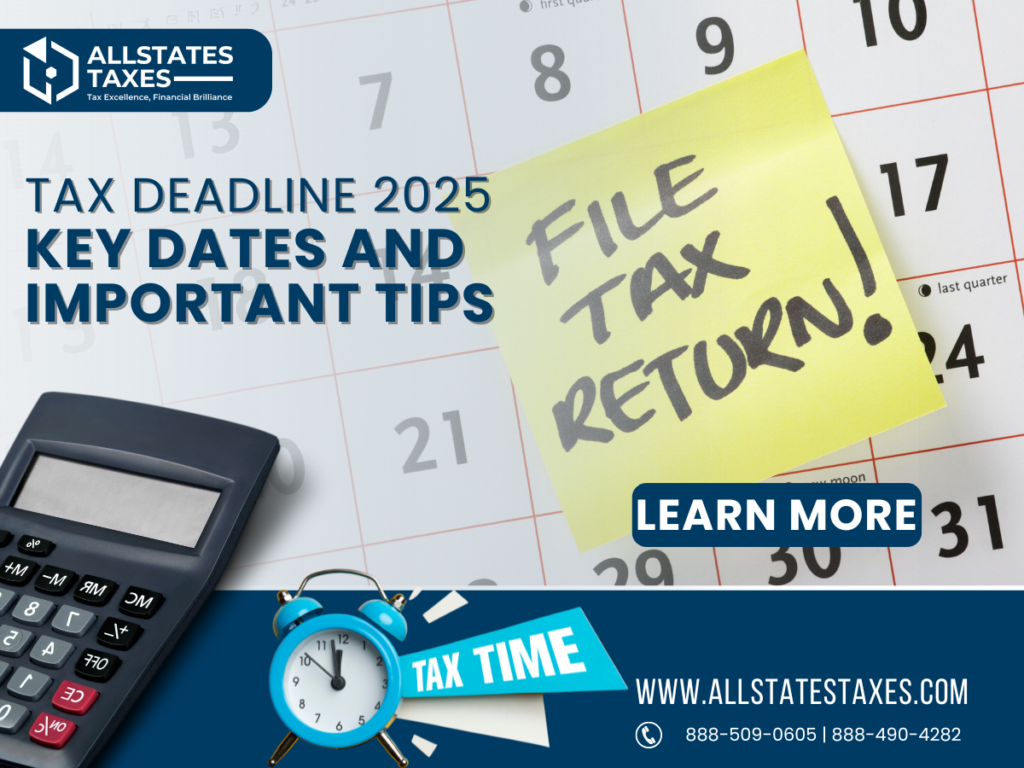The tax deadline for 2025 is approaching fast, and many Americans are preparing to file their taxes for the 2024 tax year. Filing taxes can be overwhelming, especially with changes in regulations and deadlines. Knowing when to file and understanding the process will help ensure you avoid penalties and maximize any potential refund. Let’s dive into the details surrounding tax day 2025, key deadlines, and tips to ensure a smooth tax season.
When is the Tax Deadline in 2025?
The official federal tax deadline for 2025 is set for April 15. This is the last day for most taxpayers to file their 2024 federal income taxes without incurring late fees or penalties. If April 15 falls on a weekend or a federal holiday, the IRS typically extends the deadline to the next business day.
While April 15, 2025, is the critical deadline for most, you can start filing your taxes as early as late January 2025, once the IRS begins accepting returns. Filing early has several benefits, including a faster refund and reduced risk of identity theft.
Extensions and Late Filing
If you’re unable to file by April 15, 2025, you can request a tax extension. This gives you until October 15, 2025, to file your return. However, keep in mind that while the extension allows for more time to file, you must still pay any owed taxes by the April 15 deadline to avoid interest or penalties.
Even if you can’t pay the full amount, the IRS recommends paying as much as possible to reduce penalties.
For taxpayers in certain disaster-affected regions, such as those impacted by hurricanes in 2024, the IRS may extend filing deadlines further. For instance, some states had extended deadlines in 2025 due to specific natural disasters..
What Happens if You Miss the Tax Deadline?
Missing the April 15, 2025 deadline can result in significant financial consequences. The IRS imposes a failure-to-file penalty, which can be up to 5% of unpaid taxes for each month your return is late, up to a maximum of 25%. Additionally, a failure-to-pay penalty is applied at 0.5% per month of the unpaid amount.
If you can’t file on time, it’s crucial to file for an extension. This prevents the failure-to-file penalty but won’t stop interest or failure-to-pay penalties from accumulating.
Important Documents to Prepare
Before filing your taxes, ensure you have all necessary documents:
- W-2s from employers
- 1099 forms for freelance or contractor income
- Tax identification numbers
- Receipts for deductible expenses
- Any documents related to tax credits, such as those for energy-efficient home improvements or student loans.
It’s a good idea to start gathering these documents early, so you’re prepared when the filing season opens.
Estimated Tax Payments and Quarterly Taxes
For self-employed individuals, freelancers, or business owners, quarterly estimated tax payments are a major part of tax planning. The IRS expects these payments throughout the year, with the final 2024 quarterly tax payment due by January 15, 2025. Failing to make these payments can result in penalties when you file your return.
State Tax Deadlines
In addition to federal taxes, many Americans must also file state taxes. Each state has its own tax deadlines, and while many align with the federal deadline, it’s essential to verify with your state’s tax department to avoid confusion.
Tax Credits and Deductions in 2025
Understanding available tax credits and deductions can significantly lower your taxable income. Some key credits to consider for the 2024 tax year include:
- Energy-efficient home improvements: The Inflation Reduction Act extended and increased the credits available for energy-efficient upgrades, such as installing solar panels.
- Electric vehicle credits: If you purchased an electric vehicle in 2024, you might qualify for a tax credit up to $7,500.
- Student loan interest: You can deduct up to $2,500 in student loan interest.
Maximizing deductions and credits can lead to significant tax savings, so consult with a tax professional if you’re unsure about your eligibility.
Tips for a Smooth 2025 Tax Season
- File early: This helps avoid last-minute stress, reduces the risk of identity theft, and ensures quicker refunds.
- Use tax software or consult a professional: Tax software can guide you through deductions and credits, while a professional can offer personalized advice, especially if you have complex finances.
- Double-check your return: Errors can delay refunds and trigger audits, so review your filing thoroughly before submission..
FAQs
When is the tax deadline in 2025?
The federal tax deadline for 2025 is April 15. You can file for an extension if needed, but any owed taxes are still due by April 15.
What if I miss the tax deadline?
If you miss the deadline, you may face penalties. File as soon as possible to reduce fees, or request an extension before the deadline.
How can I avoid penalties for late filing?
File your return or request an extension by April 15. Pay any taxes owed by that date to avoid penalties and interest.
When can I start filing my taxes in 2025?
Tax filing for 2025 is expected to open in late January. Check with the IRS for the exact date.
Do state tax deadlines differ from federal deadlines?
Yes, state tax deadlines vary, so check with your state’s tax agency to confirm its filing deadline.
Can I file my taxes early?
Yes, filing early is encouraged as it can help avoid delays and ensures a quicker refund.
Conclusion
The tax deadline 2025 is a crucial date for all U.S. taxpayers. By preparing in advance, filing early, and taking advantage of extensions when necessary, you can avoid the stress of last-minute filing. Make sure to gather all your documents ahead of time, and if you’re unsure of any part of the process, consulting a tax professional is always a wise choice. With the right preparation, you’ll breeze through tax season and be ready well before April 15, 2025.



